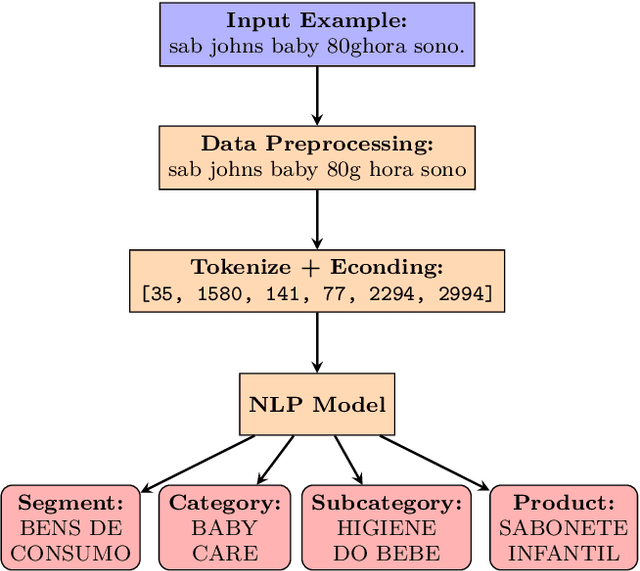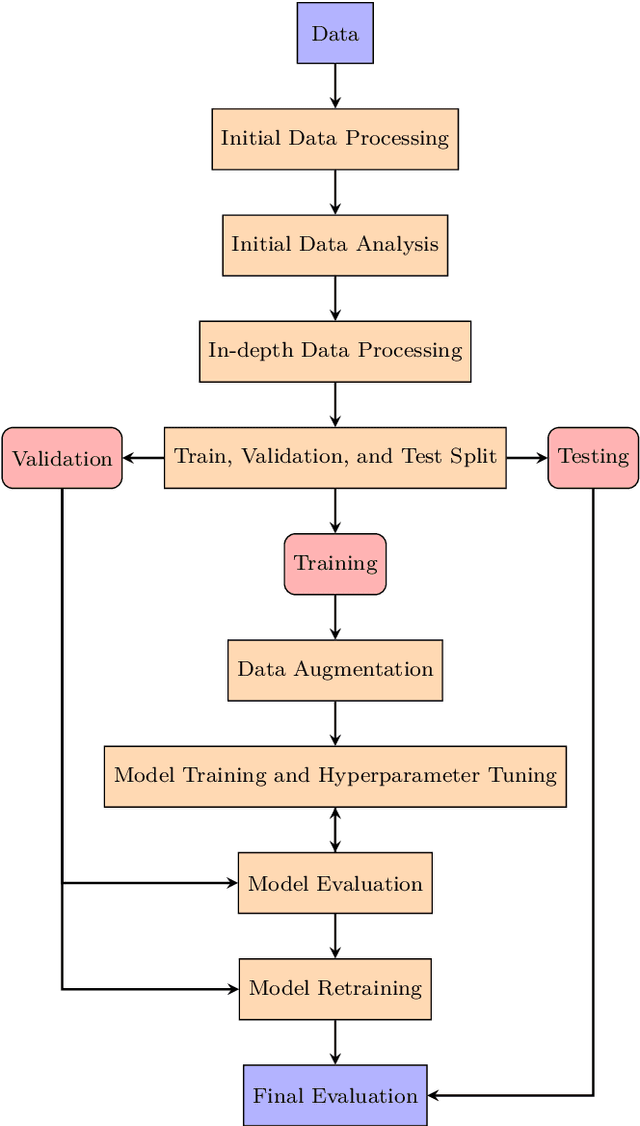Marcos Jardel Henriques
Multi-level Product Category Prediction through Text Classification
Mar 03, 2024



Abstract:This article investigates applying advanced machine learning models, specifically LSTM and BERT, for text classification to predict multiple categories in the retail sector. The study demonstrates how applying data augmentation techniques and the focal loss function can significantly enhance accuracy in classifying products into multiple categories using a robust Brazilian retail dataset. The LSTM model, enriched with Brazilian word embedding, and BERT, known for its effectiveness in understanding complex contexts, were adapted and optimized for this specific task. The results showed that the BERT model, with an F1 Macro Score of up to $99\%$ for segments, $96\%$ for categories and subcategories and $93\%$ for name products, outperformed LSTM in more detailed categories. However, LSTM also achieved high performance, especially after applying data augmentation and focal loss techniques. These results underscore the effectiveness of NLP techniques in retail and highlight the importance of the careful selection of modelling and preprocessing strategies. This work contributes significantly to the field of NLP in retail, providing valuable insights for future research and practical applications.
fakenewsbr: A Fake News Detection Platform for Brazilian Portuguese
Sep 21, 2023



Abstract:The proliferation of fake news has become a significant concern in recent times due to its potential to spread misinformation and manipulate public opinion. This paper presents a comprehensive study on detecting fake news in Brazilian Portuguese, focusing on journalistic-type news. We propose a machine learning-based approach that leverages natural language processing techniques, including TF-IDF and Word2Vec, to extract features from textual data. We evaluate the performance of various classification algorithms, such as logistic regression, support vector machine, random forest, AdaBoost, and LightGBM, on a dataset containing both true and fake news articles. The proposed approach achieves high accuracy and F1-Score, demonstrating its effectiveness in identifying fake news. Additionally, we developed a user-friendly web platform, fakenewsbr.com, to facilitate the verification of news articles' veracity. Our platform provides real-time analysis, allowing users to assess the likelihood of fake news articles. Through empirical analysis and comparative studies, we demonstrate the potential of our approach to contribute to the fight against the spread of fake news and promote more informed media consumption.
 Add to Chrome
Add to Chrome Add to Firefox
Add to Firefox Add to Edge
Add to Edge